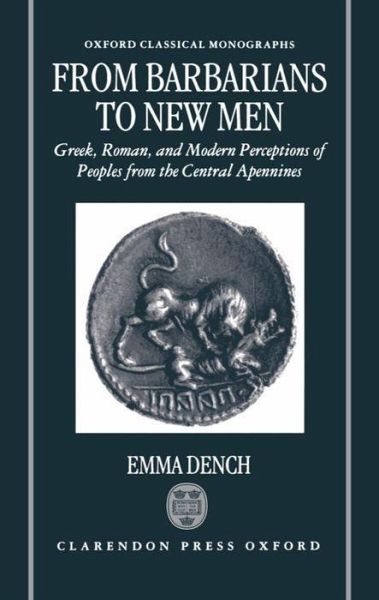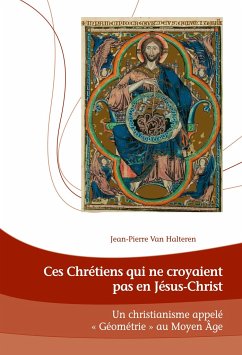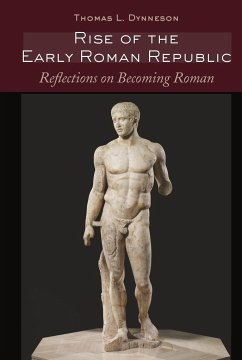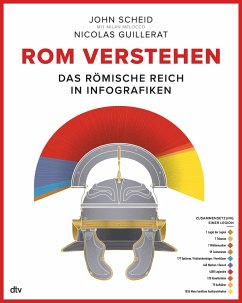
From Barbarians to New Men
Greek, Roman, and Modern Perceptions of Peoples from the Central Apennines
Versandkostenfrei!
Versandfertig in 1-2 Wochen
217,99 €
inkl. MwSt.

PAYBACK Punkte
109 °P sammeln!
The Central Apennine peoples, represented alternatively as decadent and dangerous snake-charming barbarians or as personifications of manly wisdom and virtue, as austere and worthy 'new men', were important figures in Greek and Roman ideology. Concentrating on the period between the later fourth century BC and the aftermath of the Social War, this book considers the ways in which Greek and Roman perceptions of these peoples developed, reflecting both the shifting needs of Greek and Roman societies and the character of interaction between the various cultures of ancient Italy. Most importantly,...
The Central Apennine peoples, represented alternatively as decadent and dangerous snake-charming barbarians or as personifications of manly wisdom and virtue, as austere and worthy 'new men', were important figures in Greek and Roman ideology. Concentrating on the period between the later fourth century BC and the aftermath of the Social War, this book considers the ways in which Greek and Roman perceptions of these peoples developed, reflecting both the shifting needs of Greek and Roman societies and the character of interaction between the various cultures of ancient Italy. Most importantly, it illuminates the development of a specifically Roman identity, through the creation of an ideology of incorporation. The book is also about the interface between these attitudes and the self-perception of local communities in Italy, illuminated by means of both literary and archaeological evidence. An important new contribution to modern debates on Greek and Roman perceptions of other peoples, the book argues that the closely interactive conditions of ancient Italy helped to produce far less distanced and exotic images than those of the barbarians of fifth-century Athenian thought.














